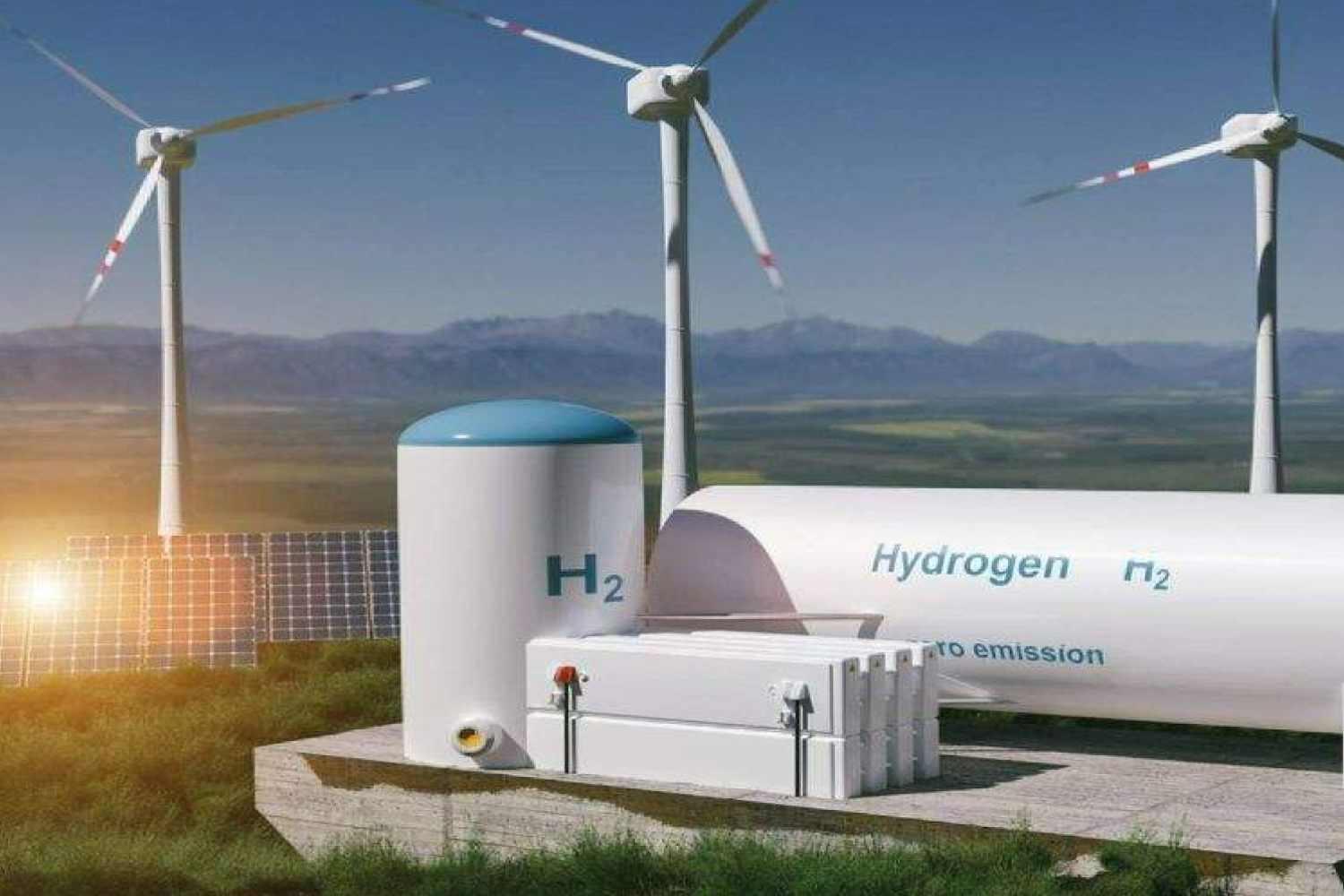Africa-Press – Cape verde. A new study, titled, ‘Africa’s Extraordinary Green Hydrogen Potential,’ conducted by the European Investment Bank (EIB), International Solar Alliance and the African Union has revealed that Africa’s green hydrogen potential is approximately $1.5 trillion, and, if maximized through to 2035, has the potential to position the continent as a global clean energy hub. Supported by the government of Mauritania, Europe’s HyDeal and Morocco’s UCLG Africa, the study has identified three green hydrogen hotspots namely Mauritania and Morocco, Southern Africa and Egypt.
The study stipulates that exploiting the continent’s solar energy potential through the development of up to 1.2 GW of new generation capacity in the three-specific hubs could enable the production of up to 50 million tons (mt) of green hydrogen per annum by 2035 at a globally-competitive cost.
This would help improve global energy resilience, the decarbonization of heavy industries, the continent’s economic competitiveness and heightened gross domestic product (GDP) growth.
Project and Policy Development Drive Expansion
With enabling policies and adequate investments in place, Africa has an opportunity to leverage its vast solar energy resources to create a $1 trillion green hydrogen economy with massive benefits to the environment, people and industry at large.
Ambroise Fayolle, Vice President of the EIB, stated that, “Unlocking Africa’s green hydrogen potential will require close cooperation between public, private and financial partners.”
While Mauritania is leading regional green hydrogen development with its large-scale $40 billion Aman project and Chariot’s 10 GW Project Nour, other developments kicking off across Egypt, South Africa, Namibia, Morocco and Angola are positioning the continent as a future green hydrogen hub. With many of the countries leveraging policy reform and legislative restructuring to get these projects off the ground, activating national planning and incentive schemes, ensuring pilots are successful and aggregating mass scale off-take, a new era of market growth is in sight.
Towards a Green Hydrogen Economy
With high energy costs and chronic electricity shortages representing key issues faced by the continent in 2023, the production of cost competitive energy at €1.55-1.90 per kg made possible through massive green hydrogen market expansion will significantly improve energy affordability and overall access.
According to the study, the expansion of the green hydrogen market and the subsequent adoption of the resource will also play an important role towards Africa’s domestic electricity market transformation by supporting the large-scale development of electricity transmission and generation infrastructure to meet growing demand across the continent.
Furthermore, green hydrogen production and exploitation in the three hubs could help Africa to avoid the emissions of 500 mt of greenhouse gas emissions, thereby enhancing the continent’s climate action through the decarbonization of hard-to-abate industries such as steel, fertilizer, mining and transport. For its part, the industry could unlock the production of 3,800 million millimeters of clean fresh water for secure supply while boosting energy monetization and GDP growth through exports to international markets.
By maximizing green hydrogen production, storage, transport infrastructure and international pipelines, Mauritania and Morocco, recognized as the North Western Africa green hydrogen hub, could produce up to 12.5 mt, of which 7.5 mt could be exported through a pipeline to Spain and international shipping, while Egypt could produce 20 mt, in which 12.5 mt could be exported via a pipeline to Greece and Calabria and via shipping to Japan and India. The Southern Africa hub could produce 17.5 mt, with 2 mt set aside for exports as nitrogen and liquefied hydrogen, according to the study. This, in turn, would help Africa maximize energy monetization and support GDP expansion.
With the energy transition intensifying and Africa seeking to exploit its entire base of energy resources to address energy poverty, the green hydrogen sector will play an increasingly important role in shaping the continent’s energy industry and driving economic growth.
For More News And Analysis About Cape verde Follow Africa-Press






